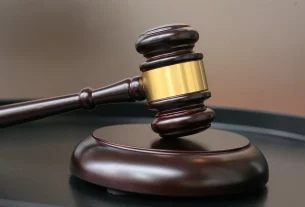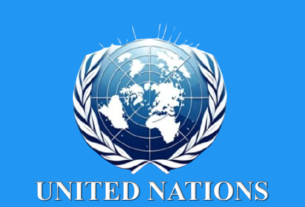In a high-stakes moment for U.S. politics, former President Donald Trump has declared victory in a presidential election, despite the official results still pending confirmation by Congress. As the world watches closely, all eyes are now on the certification process in Congress, which will officially decide the outcome of the election. This unprecedented moment raises important questions about the role of Congress in determining the winner, the potential for challenges to the results, and the broader implications for the stability of American democracy.
The Role of Congress in Certifying Election Results
Under the U.S. Constitution, the responsibility for confirming the outcome of a presidential election lies with Congress. While each state’s election officials certify the results of the vote in their jurisdiction, the final, formal step is the counting of the Electoral College votes in a joint session of Congress, which typically takes place in early January following the election.
- Electoral College System: The U.S. president is not directly elected by popular vote but by an electoral system in which each state’s electors cast votes based on the outcome of the popular vote within that state. These votes are certified by state officials before being sent to Congress.
- Congress’s Role: Once the electoral votes are sent to Washington, a joint session of Congress is convened to formally count the votes. While the results are usually a formality, members of Congress have the right to object to certain votes. If any objections are raised, they must be debated, and both the House and Senate must vote on whether to accept or reject the objections.
- Certification Process: Following the count and any debate over objections, Congress will certify the results, at which point the president-elect is officially declared the winner. If no objections are sustained, the Electoral College vote is accepted, and the newly elected president is confirmed.
Trump’s Declaration of Victory: Political Ramifications
Trump’s declaration of victory before Congress has completed its certification process sets the stage for a dramatic political showdown. While declaring victory prematurely is not illegal, it does raise questions about the legitimacy of the process and the public’s trust in the final outcome.
- Public Perception and Trust: If Trump’s declaration is perceived as an attempt to influence or preempt the certification process, it could lead to significant political unrest. Supporters of Trump may view his declaration as a statement of confidence, while opponents might see it as an undermining of democratic procedures. Given the contentious political climate in the U.S., this could lead to further polarization.
- Legal and Constitutional Challenges: If Trump’s declaration of victory contradicts the actual certified results, it could lead to legal challenges and disputes over the legitimacy of his claim. Trump has already faced several legal battles, and his declaration could lead to additional court cases or even a constitutional crisis if the process is contested.
- Implications for the Peaceful Transfer of Power: A critical aspect of American democracy is the peaceful transfer of power between administrations. If Trump declares victory, but Congress does not certify him as the winner, it could create a confrontation over the results. This scenario raises concerns about the stability of U.S. institutions and whether the nation can smoothly transition to a new administration.
What Happens Next: The Certification Process and Potential for Objections
Once Trump has declared victory, Congress will begin its official process of counting and certifying the electoral votes. This process, set to take place in early January following a presidential election, involves several key steps:
- Joint Session of Congress: The two chambers of Congress—House of Representatives and Senate—meet in a joint session to count the electoral votes. The process is largely ceremonial, but members of Congress have the ability to object to individual state results.
- Objections and Debate: If any member of Congress raises an objection to the certification of a particular state’s electoral vote, the objection must be submitted in writing and is subject to a two-hour debate. Both the House and Senate must vote on whether to accept or reject the objection. Objections are rare and historically have not resulted in overturning election results.
- Certification: Once the debate concludes and any objections are resolved, Congress formally certifies the election results. If no objections are sustained, the process proceeds without further delay, and the president-elect is confirmed.
Potential Legal and Political Challenges
Trump’s early declaration could invite challenges from various quarters:
- Electoral Integrity: Should Trump’s claims of victory be in contrast to the certified results, it may prompt challenges based on the integrity of the electoral system. Some may view his premature declaration as an attempt to subvert the will of the voters and undermine the legitimacy of the election process.
- Congressional Objections: In the event that any members of Congress object to the certification of the election results, those objections could lead to significant delays in confirming the president-elect. While such objections are rare, they could raise doubts about the fairness of the election and prolong the transition process.
- Court Involvement: Given the current political climate, it is possible that courts could become involved in resolving disputes over Trump’s claims of victory. A ruling in favor of Trump’s declaration could lead to a constitutional crisis, while a ruling against him could further alienate his supporters and deepen political divisions.
The International Implications
The political fallout from Trump’s premature declaration of victory could have ramifications beyond the U.S. borders:
- Global Markets and Stability: The uncertainty surrounding the U.S. election result could contribute to market volatility and uncertainty in global financial markets. Investors and foreign governments may be concerned about the ability of the U.S. government to function smoothly and maintain stability.
- Foreign Policy: If Trump’s claims of victory are contested, foreign allies may worry about the future of U.S. foreign policy, which could be disrupted by an uncertain leadership transition. Diplomatic relations may be affected by the internal political turmoil in the U.S.
Conclusion: A Critical Moment for U.S. Democracy
As Trump declares victory while awaiting Congressional confirmation, the U.S. faces a critical moment in its democratic history. While Congress’s role in certifying the results is largely procedural, this unprecedented scenario invites both legal and political challenges that could have far-reaching consequences for the peaceful transfer of power and the credibility of the electoral system. The world watches closely, hoping that American institutions will stand firm in the face of uncertainty and ensure that the will of the people is upheld.
References:
- U.S. Constitution, Article II and the 12th Amendment
The Constitution outlines the procedures for the electoral process and the certification of results by Congress.
U.S. Constitution – National Archives - The Electoral Count Act
The 1887 Electoral Count Act outlines how Congress handles disputes over electoral votes.
Electoral Count Act – Cornell Law School - Congress’s Role in Presidential Elections – The Congressional Research Service
A detailed report explaining how Congress certifies the results of U.S. presidential elections.
CRS Report on Presidential Elections - BBC News – U.S. Electoral Process and Congress’s Role in Certification
BBC News – U.S. Election Process
This article provides a detailed overview of the potential legal, constitutional, and political scenarios that could unfold as Trump declares victory before Congress certifies the results. It also outlines the steps Congress would take to confirm the results and the broader implications for U.S. democracy.



